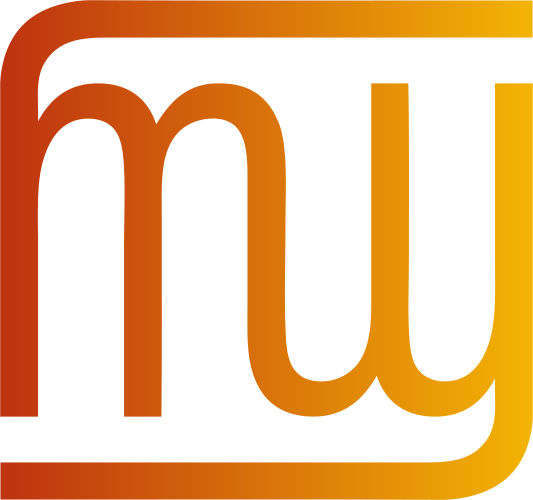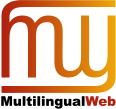 The W3C Internationalization (I18n) Activity works with W3C working groups and liaises with other organizations to make it possible to use Web technologies with different languages, scripts, and cultures.
The W3C Internationalization (I18n) Activity works with W3C working groups and liaises with other organizations to make it possible to use Web technologies with different languages, scripts, and cultures.
From this page you can find articles and other resources about Web internationalization, and information about the groups that make up the Activity.
Read also about opportunities to participate and fund work via the new Sponsorship Program.
What the W3C Internationalization Activity does
Selected quick links
Selected quick links
Selected quick links
Contribute to the foundations of linguistic linked data processing: dedicated LD4LT call on the LIDER reference architecture
The LIDER project is developing a reference architecture for working with Linguistic Linked Data (LLD). LLD is linked data used to represent metadata about linguistic resources and the resources themselves, e.g. lexica, thesauri, corpora, multilingual semantic networks etc. The reference architecture defines various aspects of LLD processing, related e.g. to LLD publishing, linking, services or discovery. As part of this activity, the LD4LT community group is organizing a conference call on 5 March, 3 p.m. CET, to gather feedback from the public at large.
The call is open to the public, no LD4LT group participation is required. Dial-in information is available. No knowledge about LLD is required. We especially are interested in feedback from potential users of LLD in content analytics related application areas.
Speaker deadline for Riga MultilingualWeb Workshop is Sunday, 8 March
We would like to remind you that the deadline for speaker proposals for the 8th MultilingualWeb Workshop (April 29, 2015, Riga, Latvia) is on Sunday, March 8, at 23:59 UTC.
Featuring a keynote by Paige Williams (Director of Global Readiness, Trustworthy Computing at Microsoft) and sessions for various audiences (Web developers, content creators, localisers, users, and multilingual language processing), this workshop will focus on the advances and challenges faced in making the Web truly multilingual. It provides an outstanding and influential forum for thought leaders to share their ideas and gain critical feedback.
While the organizers have already received many excellent submissions, there is still time to make a proposal, and we encourage interested parties to do so by the deadline. With roughly 150 attendees anticipated for the Workshop from a wide variety of profiles, we are certain to have a large and diverse audience that can provide constructive and useful feedback, with stimulating discussion about all of the presentations.
The workshop is made possible by the generous support of the LIDER project and will be part of the Riga Summit 2015 on the Multilingual Digital Single Market. We are organizing the workshop as part of the Riga Summit to strengthen the European related community at large. Depending on the number of submissions to the MultilingualWeb workshop we may suggest to move some presentations to other days of the summit. For these reasons we highly recommend you to attend the whole Riga Summit! See the line-up of speakers already confirmed for the various events during the summit.
For more information and to register a presentation proposal, please visit the Riga Workshop Call for Participation. For registration as a regular participant of the MultilingualWeb workshop or other events at the Riga Summit, please register at the Riga Summit 2015 site.
Updated article: Tagging text with no language
The article Tagging text with no language was updated to correct that statement that lang=”” is not appropriate for HTML. This was introduced with HTML5.
In addition, various editorial changes were made and the page was reorganized, moving the information about XHTML and XML schema considerations to a new advanced section.
Call for Participation: 4th Workshop on the Multilingual Semantic Web
The LIDER project is co-organizing the 4th Workshop on the Multilingual Semantic Web, 1st June 2015, Portoroz, Slovenia, co-located with the 12th Extended Semantic Web Conference (ESWC 2015).
This workshop series is concerned with research questions on how current Semantic Web infrastructure can and should be extended to advance the Semantic Web and linked data use and development across language communities around the world.
The call for participation provides further information. Deadline for submissions is 15 March 2015.
Shape the future of content analytics applications: dedicated LD4LT call on the LIDER draft roadmap
The LIDER project is gathering feedback on a roadmap for the use of Linguistic Linked Data for content analytics. As part of this activity, the LD4LT community group is organizing a conference call on 19 February.
The call is open to the public, no LD4LT group participation is required. Dial-in information is available. No knowledge about linguistic linked data is required. We especially are interested in feedback from potential users of linguistic linked data in content analytics related application areas.
Paige Williams (Microsoft) to keynote at 8th Multilingual Web Workshop (April 29, 2015, Riga)
We are please to announce that Paige Williams, Director of Global Readiness, Trustworthy Computing at Microsoft, will deliver the keynote at the 8th Multilingual Web Workshop, “Data, content and services for the Multilingual Web,” in Riga, Latvia (29 April 2015).
Paige spent 10 years managing internationalization of Microsoft.com, before joining the Trustworthy Computing organization in 2005. In TwC, Paige oversees compliance of company policy for geographic, country-region and cultural requirements, establishing a new center of excellence for market and world readiness, globalization/localizability, and language programs, tools, resources and external community forums to reach markets across the world with the right local experience.
The Multilingual Web Workshop series brings together participants interested in the best practices, new technologies, and standards needed to help content creators, localizers, language tools developers, and others address the new opportunities and challenges of the multilingual Web. It will provide for networking across communities and building connections.
Registration for the Workshop is free, and early registration is recommended since space at the Workshop is limited.
The workshop will be part of the Riga Summit 2015 on the Multilingual Digital Single Market. We are organizing the workshop as part of the Riga Summit to strengthen the European related community at large. Depending on the number of submissions to the MultilingualWeb workshop we also may suggest to move presentations to other days of the summit. For these reasons we highly recommend you to attend the whole Riga Summit!
There is still opportunity for individuals to submit proposals to speak at the workshop. Ideal proposals will highlight emerging challenges or novel solutions for reaching out to a global, multilingual audience. The deadline for speaker proposals is March 8, but early submission is strongly encouraged. See the Call for Participation for more details.
This workshop is made possible by the generous support of the LIDER project.
Counter Styles: two documents published
The Cascading Style Sheets (CSS) Working Group has published a Candidate Recommendation of CSS Counter Styles Level 3. It adds new built-in counter styles to those defined in CSS 2.1, but, more importantly, it also allows authors to define custom styles for list markers, numbered headings and other types of generated content.
At the same time, the Internationalization Working Group has updated their Working Draft of Predefined Counter Styles, which provides custom rules for over a hundred counter styles in use around the world. It serves both as a ready-to-use set of styles to copy into your own style sheets, and also as a set of worked examples.
Recent translations into Swedish
Att välja & att använda en teckenkodning (Choosing & applying a character encoding)
Att deklarera teckenkodning i CSS (Declaring character encodings in CSS)
Att deklarera teckenkodning i HTML (Declaring character encodings in HTML)
These articles were translated into Swedish thanks to Olle Olsson, SICS.
Unicode 7.0 Paperback Available
The Unicode 7.0 core specification is now available in paperback book form.
Responding to requests, the editorial committee has created a pair of modestly-priced print-on-demand volumes that contain the complete text of the core specification of Version 7.0 of the Unicode Standard.
The form-factor in this edition has been changed from US letter to 6×9 inch US trade paperback size, making the two volumes more compact than previous versions. The two volumes may be purchased separately or together. The cost for the pair is US$16.27, plus postage and applicable taxes. Please visit http://www.lulu.com/spotlight/unicode to order.
Note that these volumes do not include the Version 7.0 code charts, nor do they include the Version 7.0 Standard Annexes and Unicode Character Database, all of which are available only on the Unicode website.
1st Summer Datathon on Linguistic Linked Open Data (SD-LLOD’15)

The 1st Summer Datathon on Linguistic Linked Open Data (SD-LLOD-15) will be held from June 15th to 19th 2015 at Residencia Lucas Olazábal of Universidad Politécnica de Madrid, Cercedilla, Madrid.
The SD-LLOD datathon will provide practical knowledge about Linguistic Linked Data. The event targets both industry and academia. Participants will learn how to migrate linguistic data and publish them as Linked Data on the Web. The datathon is organized by the LIDER project and will include practical sessions, seminars on selected topics and hacking sessions. To register, participants are expected to submit a short description (no more than 500 words) of their work and the resources they plan to work with during the datathon.
The cost of the datathon is sponsored by the LIDER project, which includes accommodation and meals of participants. There will be an administrative fee of 50€ for registering in the datathon. A limited amount of travelling grants will be available for attendants from less-developed countries who cannot cover their trip with other funds. Registration will be closed on 15th March.